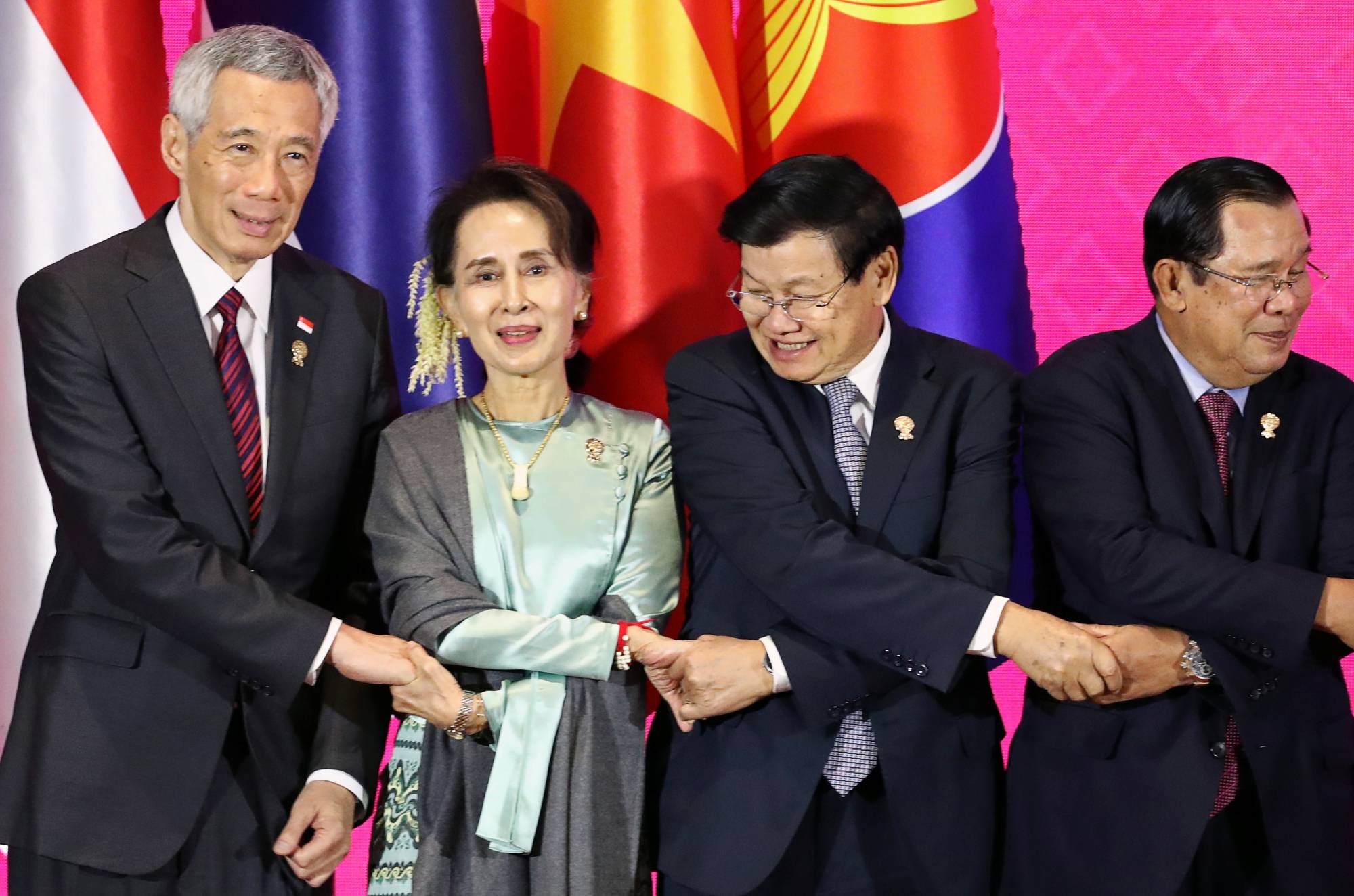The great medieval historian Ibn Khaldun once observed that even the greatest of empires would collapse once they lose their internal cohesion (assabiyah). The process of decline, he argued in “The Muqaddimah,” can take place after only a few generations, especially when the ruling elite suffers from “psychological defeat.”
Once the paragon of successful regionalism in the postcolonial world, the Association of Southeast Asian Nations is suffering from a similar process of decline and psychological defeat. Whereas once the region body was co-led by luminaries such as Singapore’s Lee Kuan Yew and Malaysia’s Mahathir Mohamad, the regional body is today dominated by a coterie of petulant despots and hapless diplomats.
Far from serving as the “engine” of pan-regional integration, ASEAN is nowadays a hotbed of indecision and internal divisions. To be fair, there are exceptions, most notably Indonesia, whose progressive leadership has tirelessly sought to steer ASEAN toward greater centrality in regional affairs.



















With your current subscription plan you can comment on stories. However, before writing your first comment, please create a display name in the Profile section of your subscriber account page.